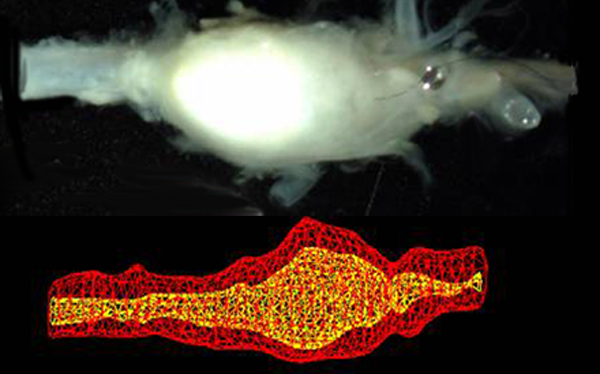Cardiovascular, Obesity & Diabetes Research Emphasis
Can novel drug targets be identified to slow the progression of abdominal aortic aneurysms? Is a stimulated renin-angiotensin system the link between obesity and the myriad of obesity-induced cardiovascular diseases, or the development of type 2 diabetes? Do specific bioactive lipids released from platelets and/or the myocardium following myocardial infarction influence platelet function? These are some of the clinically significant pharmacologic questions addressed by researchers within the Department of Pharmacology and Nutritional Sciences.
Cardiovascular pharmacology is an area of research emphasis within the department. Studies by faculty within the Department of Molecular and Biomedical Pharmacology (Drs. Cassis, Gong, Hadley, Morris, and Smyth) focus on identification of mechanisms for the development of vascular diseases (aneurysms, atherosclerosis), hypertension, and clotting disorders. The long-term goal of research within these areas is to identify novel drug targets to develop effective therapeutic strategies for cardiovascular disease, the leading cause of death in the US. An additional area of emphasis focuses on mechanisms linking obesity to cardiovascular diseases, type 2 diabetes, and impaired cognition with aging. Since the prevalence of obesity is rampant in the Commonwealth of Kentucky and the US, researchers focus on development of effective pharmacologic strategies to minimize obesity-induced complications.
The image is an aorta exhibiting an abdominal aortic aneurysm (AAA, top) with 3-D image of AAA volume (bottom).
